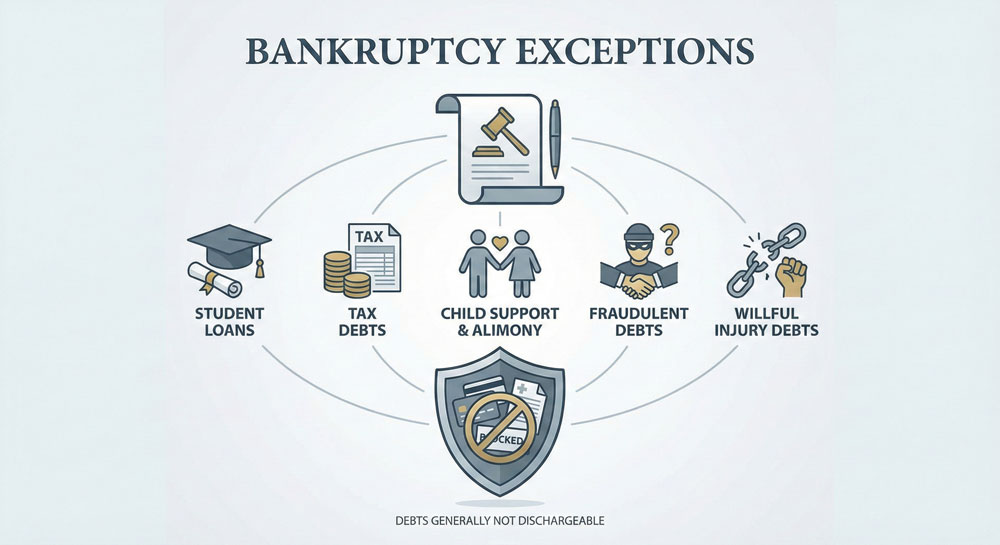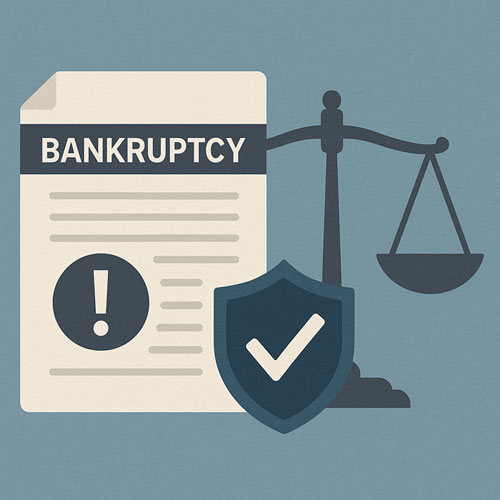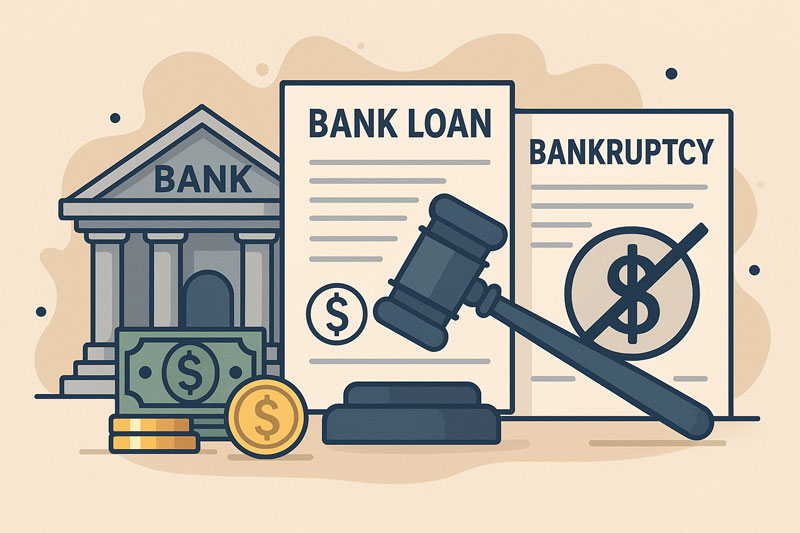Tax Debt Bankruptcy Considerations
 Ben Franklin once famously declared that nothing is certain in life except death and taxes. Your tax debt in bankruptcy might, however, expunge you of the taxes you owe to the exchequer. That also is only in certain cases. Not all of your tax debts will suddenly be written off. In most cases, you will have to pay your taxes. In a chapter 13 bankruptcy, you will need to re-plan your taxes but will have to pay them off as you owe them. If you are looking for a complete write-off, your chances are slightly better with a Cahpter7.
Ben Franklin once famously declared that nothing is certain in life except death and taxes. Your tax debt in bankruptcy might, however, expunge you of the taxes you owe to the exchequer. That also is only in certain cases. Not all of your tax debts will suddenly be written off. In most cases, you will have to pay your taxes. In a chapter 13 bankruptcy, you will need to re-plan your taxes but will have to pay them off as you owe them. If you are looking for a complete write-off, your chances are slightly better with a Cahpter7.
Tax debt
There are, as you know, a number of taxes that the government charges you and you are required to pay all of them. So if you are facing bankruptcy and are facing a few pending taxes, you might be applicable for a discharge. Discharges, however, are not that easily handed out. What you cannot discharge is a federal tax lien. If the IRS has already filed a lien on your assets before you file for bankruptcy, then you will still have to pay, whether or not you qualify.
Tax Debt Bankruptcy Considerations
Unlike a chapter 13, there are a few conditions under which you might be able to discharge your tax debts during a chapter 7.
• Income taxes get written off. All other forms of taxes including payroll taxes and penalties and all other taxes will need to be paid.
• There is no sign of fraud or evasion from payment of the tax.
• The debt is 3 years old, minimum, before filing for bankruptcy.
• Returns have been filed.
• The assessment from the IRS should have happened 240 days before the filing.
Unless the above criteria are fulfilled, you will still owe the government taxes. You are better off keeping your tax payments up to date. If you are experiencing tax debt problems, contact a Sacramento bankruptcy lawyer to discuss your options.
Categorized in: Debt



